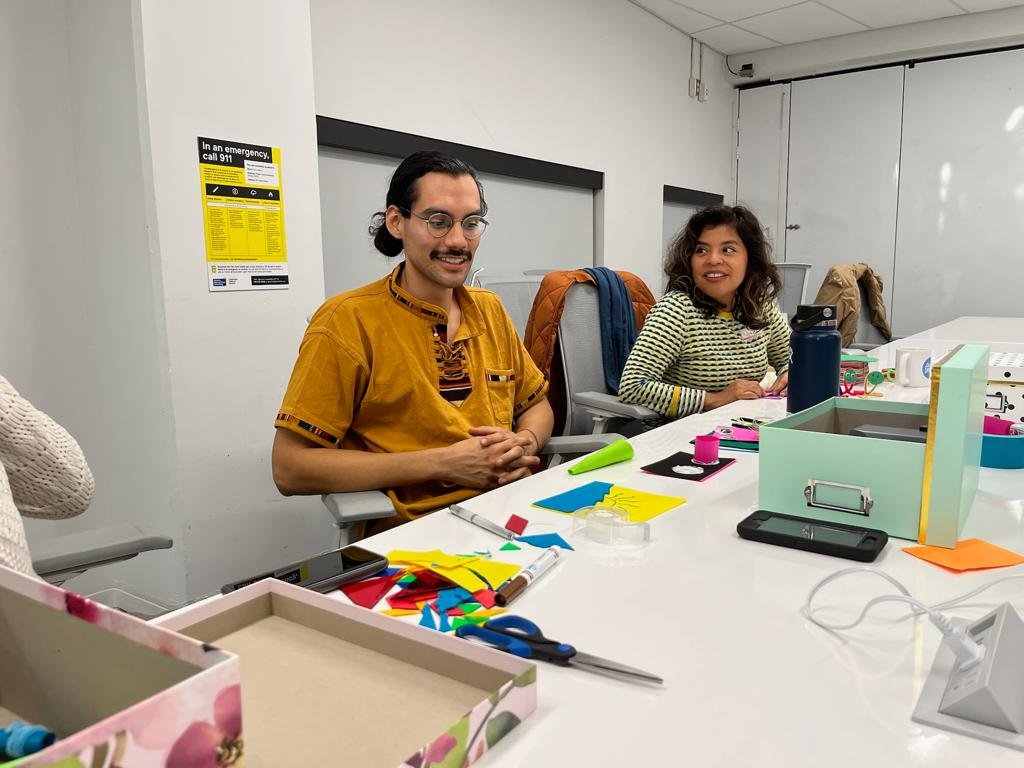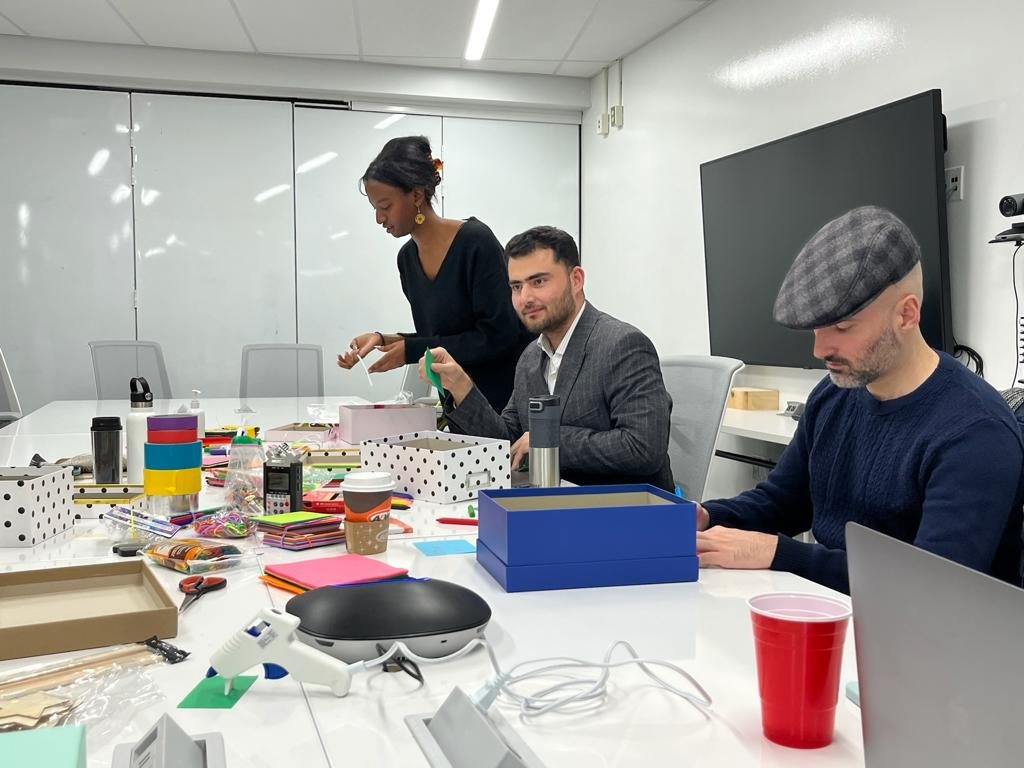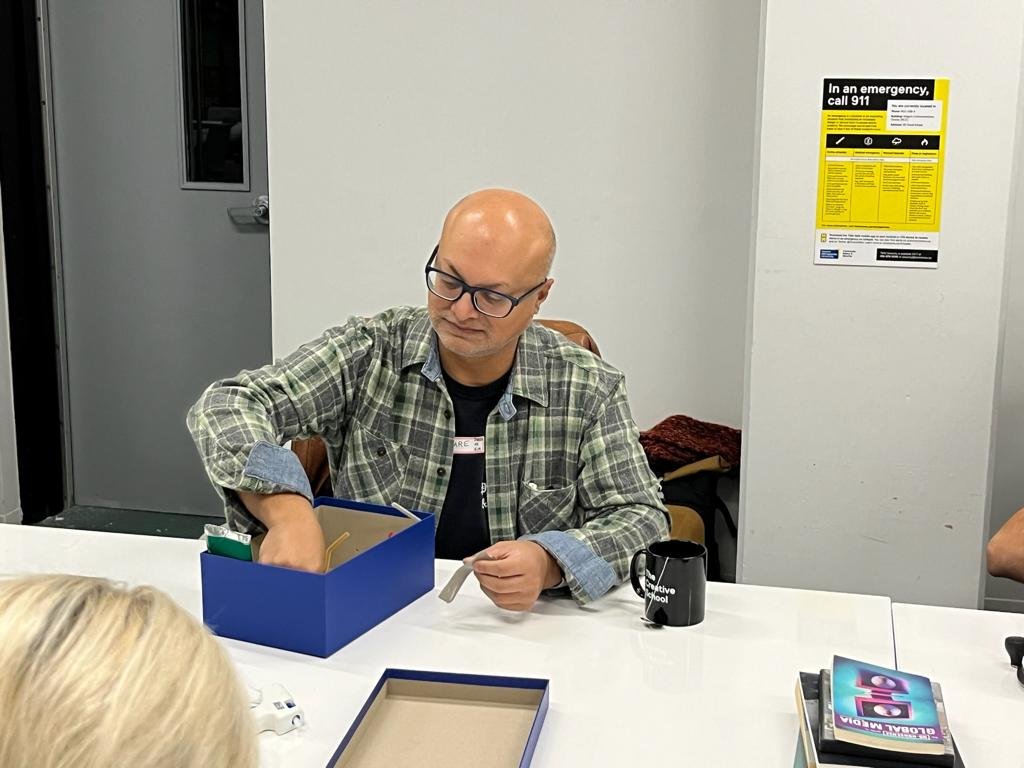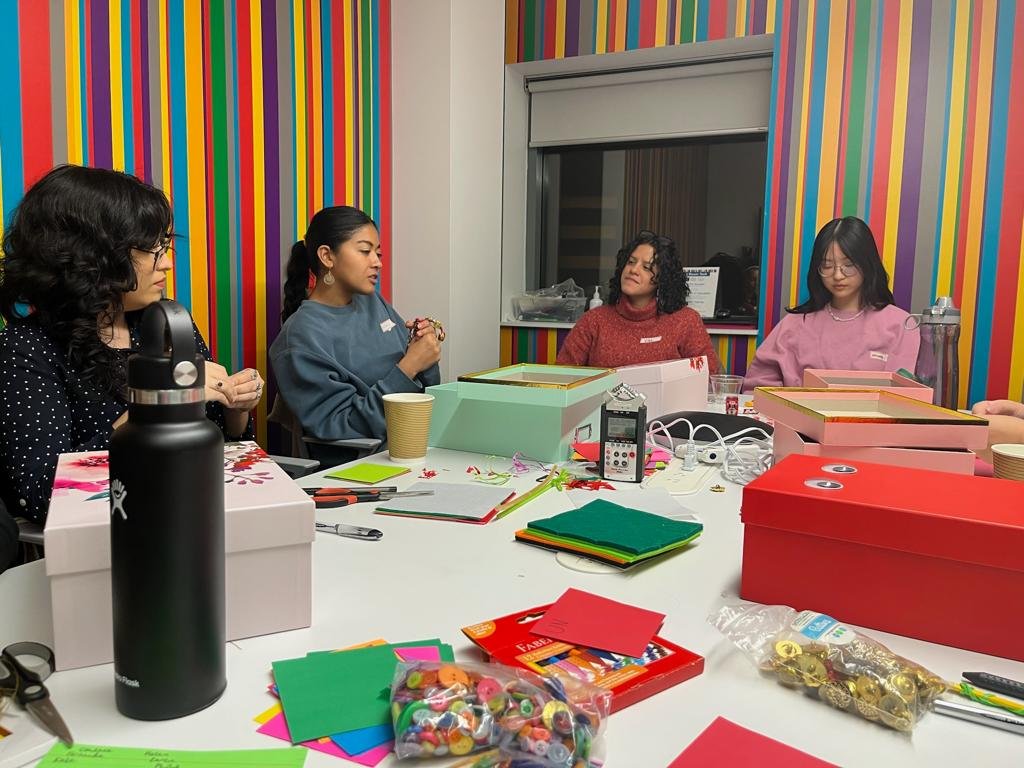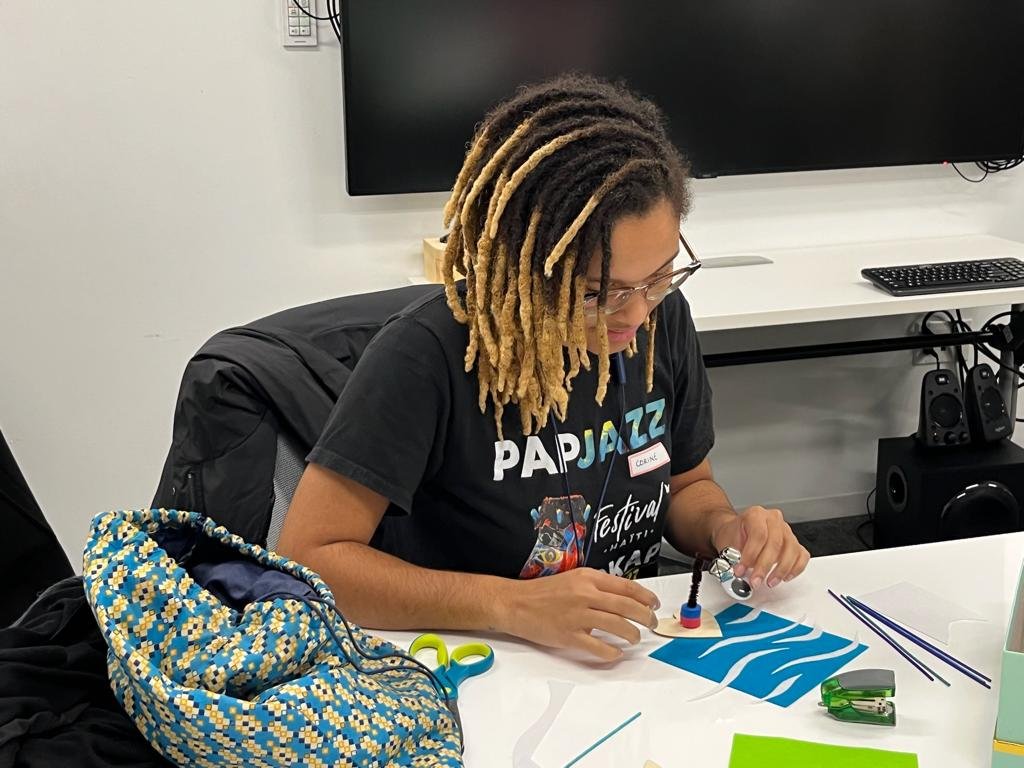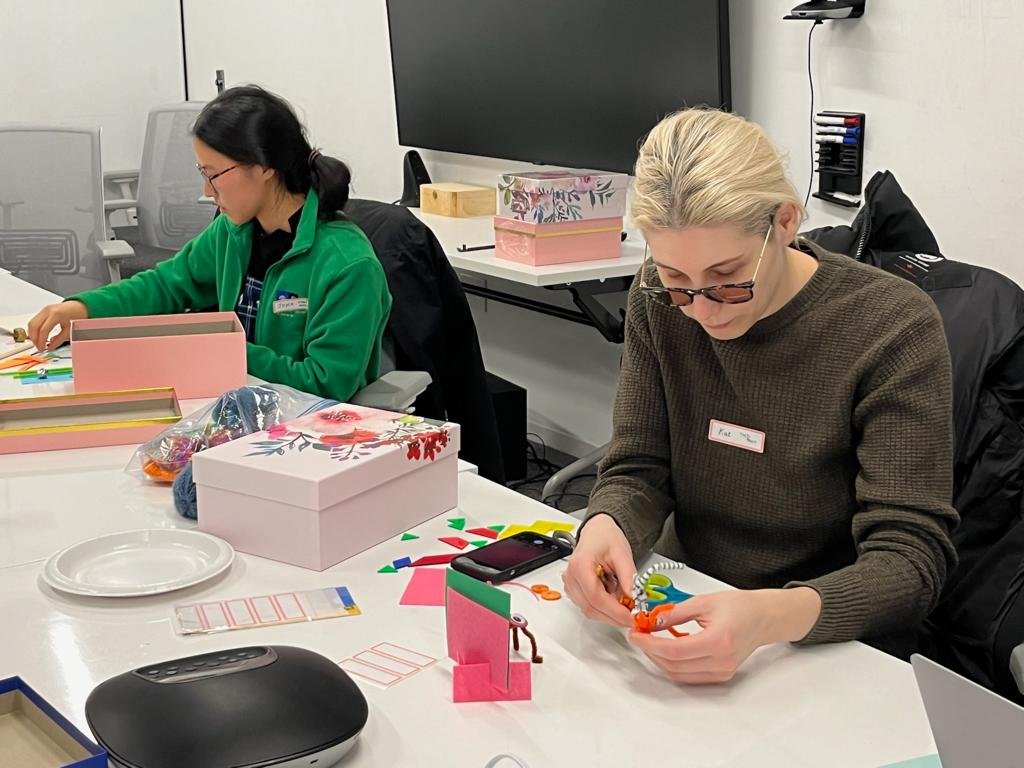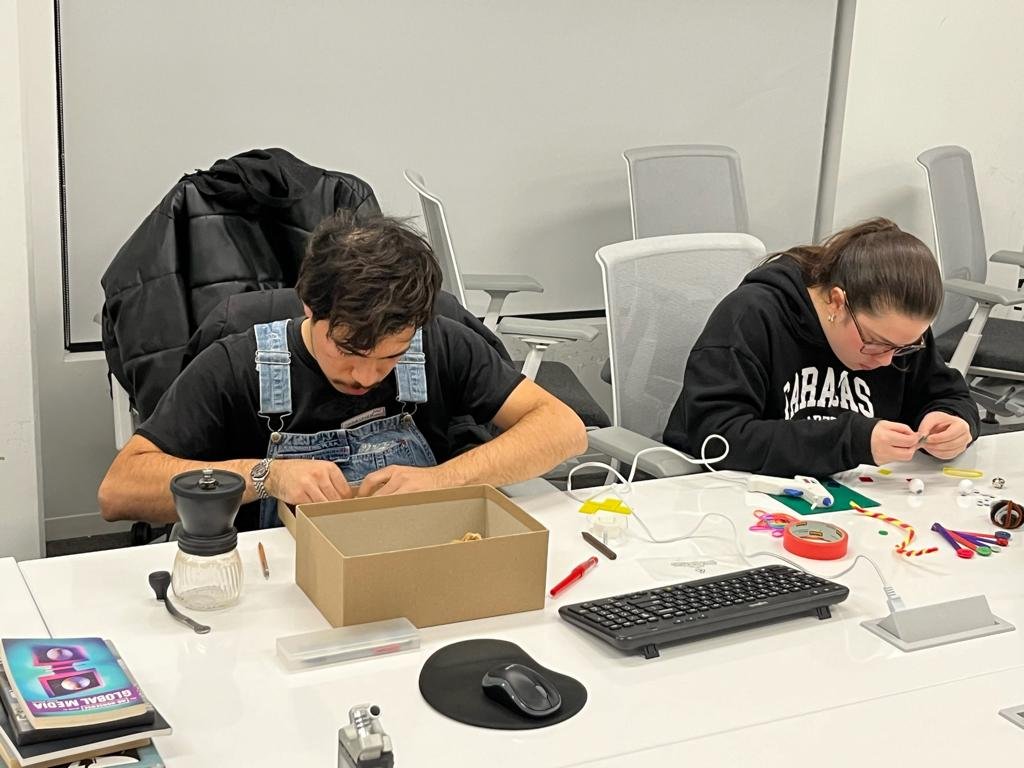Creative workshop: Build your own creative tool kit!
One of the main goals of our research project, from the beginning, was to identify the tools that creators were using to support their practice amid COVID-19 — and, ideally, to come up with new ones that could help them in future similar situations. To do so, we designed a creative workshop where participants would build their own creative tool kit and explore those ideas in the process. We hosted 6 sessions with 6 participants each.
We were interested in looking for the things, or the one big idea, that could be a solution for other creators in the face of adversity. However, at first, there was no obvious finding — no one big answer emerging from the very personal and subjective things creators usually did to keep going regardless of life’s hurdles. The plan didn’t go exactly as expected, but after analyzing the data in more detail we saw the important lessons that the workshops left us with.
We don’t need to give creators the right answer, we need to provide the space for them to find their own
We had thought we might find a common tool, system or way of being among the participants experiences. But instead, we found two related ideas:
There’s not one tool that fits all: Participants had very specific and personal ways of going through a difficult moment so we had little luck finding a common tool among them that we could somehow replicate. So the finding then, was precisely that. We can look for tools, solutions and answers that would solve it all but, of course, there are no magic tools. Only unique people with feelings, emotions and particular needs.
Just the act of being at the workshop was already useful: Being in a space where participants could talk about their feelings, practices and creativity with other creators, was in itself valuable, and a catalyst for them to explore their own creative practices and the specific things that helped them at an individual level.
We should not wait until the next global crisis to start equipping artists and creators with the things that will help them get through it. Instead, we should be building inclusive and accesible platforms and spaces that would allow for them to explore their particular experiences to come up with their own answers and find the right mindset that can support their creativity in a difficult time.
Although there was much variety in their answers, participants in our sessions did mention a few practices that have helped them in the past. We grouped them in three categories:
Things that nurtured their body — eating well, exercising or taking a walk in nature, and resting or taking breaks.
Things that nurtured their soul — spending time with friends and family, going back to the art, books, movies and creators that inspire them.
Being mindful of their personal motivators — talking to a particular person, going to a specific place or remembering a special detail from a past experience.
Strikingly, the vast majority of the things our participants mentioned that supported their creativity were not really tools or systems, but feelings supported by motivation and self-exploration. They were not talking about learning a new skill, or getting better at a certain task.
Motivational emotions, perspectives and self-care practices were what they considered crucial to keep going.

